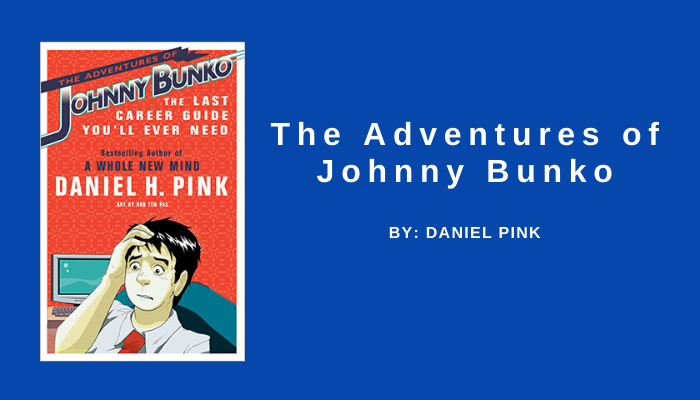Book Summary: The Adventures of Johnny BunkoPosted by Shakeel Mohamed on Jan. 21, 2020 (This is reposted from my LinkedIn article: https://www.linkedin.com/pulse/book-summary-adventures-johnny-bunko-shakeel-mohamed-csm/) Over the December holiday break I spent a lot of time reading a mix of books. Some of those were design books and easy to find ways to apply what I’ve learned. For other personal or professional books, there isn’t necessarily a straightforward way to apply that knowledge. So I’ve decided to write a post about every personal or professional development book I read this year. Teaching is the best way to learn right?! To start the year off, I read The Adventures of Johnny Bunko by Daniel Pink. On the surface, this looks like just another comic book, which Pink brilliantly uses to explain 6 essential pieces of career advice. It was a fun experience to read a practical personal development book that feels like a comic book. It took me back to those days of Scholastic book fairs from elementary school. It’s a very quick read, it probably took about an hour or two. I’ll keep this first post of the year brief — without further delay, I’ll get into the 6 lessons with some commentary on each. I won’t be getting into the plot line at all and ruin the story for you, just buy the book! 1. There is no plan. 🤷🏻♂️Allow life to take you where it may, something I learned from The Alchemist by Paulo Coelho. People do things for 2 reasons:
2. Think strengths, not weaknesses. 💪🏽Successful people capitalize on their strengths, not focus on their weaknesses. Gary Vaynerchuk has often said to triple down on one’s strength many times, here’s that same message in another flavor. What do you consistently do well? What gives you energy or triggers a flow state? Do those things more. If you don’t know what those activities are, try something new every month! 3. It’s not about you. 👨👩👧👦At the end of the day, it’s all about service not your ego or personal accomplishments. Reminds me of How to Win Friends & Influence People by Dale Carnegie — it’s never about you. 4. Persistence trumps talent. 🤨The fundamental message from everything Eric Thomas does: average skill, phenomenal will. This one also sparked reminders about the power of compound interest, and time in the market beats timing the market. The Compound Effect has been on my reading list for many years which seems closely related as well. 5. Make excellent mistakes. 🧹Takes risks, do big things. The 10X Rule by Grant Cardone. Just start doing, focus on increasing the quality if anyone cares later on. For example, in January I started a project designing a new lyric poster every day for 31 days and sharing them on Instagram (@ntrsct.designs). They’re not very good, in fact some are terrible. I hadn’t finished the assignments I purchased from in typography course from the Futur, but it’s something I could start with low friction and no expectations. 6. Leave an imprint. 💥Know your “why”. Golden Circle Theory explains this concept beautifully in Start With Why by Simon Sinek. Life is short, what do you really want your life to be about? What impact do you want to have? Think about these things now, not when you’re at a point in life where you can’t change anything. Thank you, next. ➡️I know this post wasn’t super well written or thought out. I’m believe writing this post itself is practicing the 6 lessons in the following ways:
PS: For more information about the book, check out johnnybunko.com ✌🏽 |